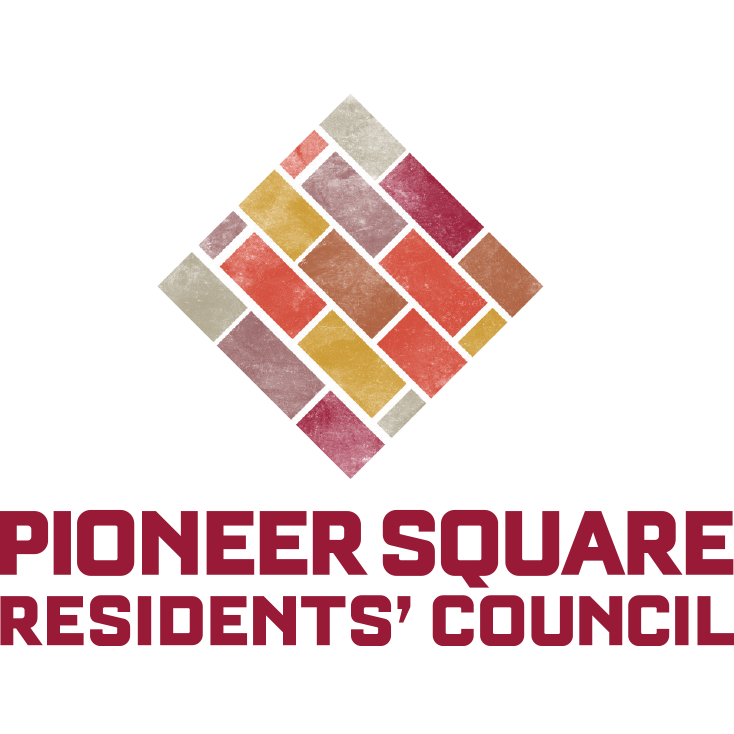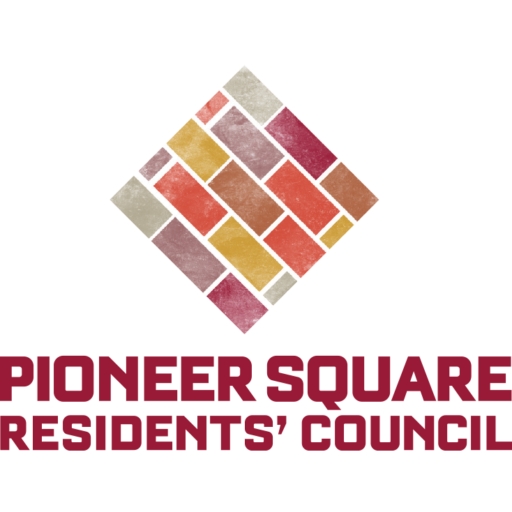18 Jun Let’s look for reasons to help, not reasons to complain
Two months ago, I did a post about a Great City brownbag, where people came together from around the city to brainstorm ideas for how to revitalize Pioneer Square. Shortly after posting it, someone commented that we hadn’t included any homeless in the discussion. At the time, I was annoyed at the comment because anyone was welcome to attend the brownbag, and I think I drafted like 5 or 6 responses, which I never ended up posting. Instead, I decided to take his/her advice and ask someone from the homeless community what they thought could change in Pioneer Square.
Meet George Hazel.
 George is originally from Virginia, and has been in Seattle for almost two years now. His background includes divorce, drugs, alcohol, and a downward spiral that almost destroyed his life.
George is originally from Virginia, and has been in Seattle for almost two years now. His background includes divorce, drugs, alcohol, and a downward spiral that almost destroyed his life.
By the time George made it to Seattle, he was already off of drugs and alcohol, but still needed help to get his life back on track. He was accepted into the Bread of Life’s LifeChange program, and started what he calls “a grueling, 12 month program.”
When I asked him what made the program so difficult, he said that “when you’re coming from an addictive past, whatever that addiction might be, it has you in bondage, and is something that makes you feel defeated. You say to yourself ‘I know I’m better than this — why am I letting this thing hold me down?’ It’s hard to think — what if I had never gotten into drugs or alcohol — I could be in a very different place right now. That’s the most difficult part of being in a program. You’re in the program because you misjudged and dropped the ball and you have to come to terms with that.”
After completing the LifeChange program in March of this year, he continued to live at the Bread of Life Mission (BOLM), but is now part of the staff.
Having lived in Pioneer Square for almost two years now, and having a unique perspective on homelessness, I asked George what his perceptions of the neighborhood were. He said that he sees homeless with cups, hats, gloves, scarves — whatever they can hold out for money — and he thinks to himself– “how can people sit around here and walk past somebody every day that’s going through something and they don’t ask themselves what they can do to help this person out. Someone asks for 50 cents, and people act like they’re asking for their social security number.”
Through his own personal experiences, George knows what it’s like to be in that situation, and the feelings of hopelessness that surround it. “I know that feeling of there’s no way out — no one loves me, no one cares about me. To get out of that, you have to get to the point with yourself where you say enough is enough.” But to get out of that situation, he says, you need someone that cares about you — you need people to show more compassion.
In the Bread of Life program, George received the compassion he needed and had people surrounding him that genuinely wanted him to succeed, and that’s one of the things he believes Pioneer Square needs have more of in order to facilitate any type of change.
We talked about the debate surrounding aggressive panhandling and the opinion of many that if people just stop giving money to those who ask for it, it will stop the problem with the people who are overly aggressive about it. Although George agreed that one of the best things someone can do is to give money to the shelters who have the experience and resources to really help people, he also feels that people on the street shouldn’t be shunned.
“I work in the shelter and I still see the same guys out in the streets that get food at the BOLM, and they’re saying ‘George, George… can I have some money?’ And I don’t do it every time, but I do it at least once a week. I’ll give them a dollar or 50 cents. Why? Because even though I know that they might go and get a beer, or whatever — at that point, it’s their choice. If they have an addiction, they might not be able to get out of it. But we have to sit back and look at the person and discern if they’re sincere about being hungry, thirsty, or trying to catch the bus. If you give something to somebody out of the sincerity of your heart — then it becomes between that person and God what they do with the money. If you don’t give it to them because you assume they’ll spend it on drugs, then you’re judging them.”
I asked him if he felt that’s the main thing that people who live and work in Pioneer Square can do to change, and he responded that it wasn’t only in Pioneer Square — it’s down by the space needle, out in the U District, in Capitol Hill, etc.
“If people stop walking past people because they feel like their life is together, and they went to school, and they got a job and they think that everyone could do the same thing. And for many of those guys, if they could do the same thing, they would be doing the same thing.”
George personally comes from a middle class preacher’s family where both his mother and father have their Bachelor’s degrees. He emphasizes that he didn’t come from the scums, but through the course of his life, ran into problems that ended up with him being homeless.
And when he felt he had hit a low, what took him further down was people who were always criticizing. “You feel like you’re already in a hopeless situation and that people just don’t care — it takes you further down.” But if someone had looked at him and not seen the potential, he knows he wouldn’t be where he is today. There were one or two people that said to him, “George – I think you can do better than this.”
George knows that if there were more people out there, not just in Pioneer Square, not just downtown, but throughout the Greater Seattle area, that showed that they cared that things could change.
“People need to start asking themselves – ‘what can we do to help, not what can we do to complain?’ It’s easy to complain.” It’s not as easy to take action and make a difference, though.
One of those ways is for other neighborhoods to become more aware of the issues surrounding homelessness and see it as a something that they can get involved in. It’s easy to send all of the homeless down to Pioneer Square, or Belltown, where services are set up, but that ghettoizes the homeless population. It send a message that they should only feel comfortable in certain neighborhoods, but that they don’t belong elsewhere. (the Ride Free zone also contributes to this restriction of movement)
According to George, a lot of homeless men don’t feel safe in Pioneer Square where they’re easily preyed on by drug dealers or have a fear of having things stolen or being attacked when sleeping outdoors. There are a lot individuals who utilize services at the Compass Center, Bread of Life, or the Union Gospel Mission that are trying to make their lives better and get out of homelessness. “It’s tough to be homeless in Pioneer Square if you’re trying to get better,” George said. It would be great to have more support for programs that really try to place individuals in affordable housing and integrate them more into all of the neighborhoods throughout King County.
George made a lot of interesting statements throughout our conversation, and I mentioned near the end that I was either going to title the post “It’s a heart condition” (which he stated early on) or his phrase about helping instead of complaining. He asked if I would use the latter and said that if we all started looking at how we could help more, instead of spending time and energy complaining, issues such as homelessness would start to get better, and in turn, Pioneer Square would start to get better.
To see more of George’s story of going through the Bread of Life Program, check out this clip on YouTube.





Sorry, the comment form is closed at this time.